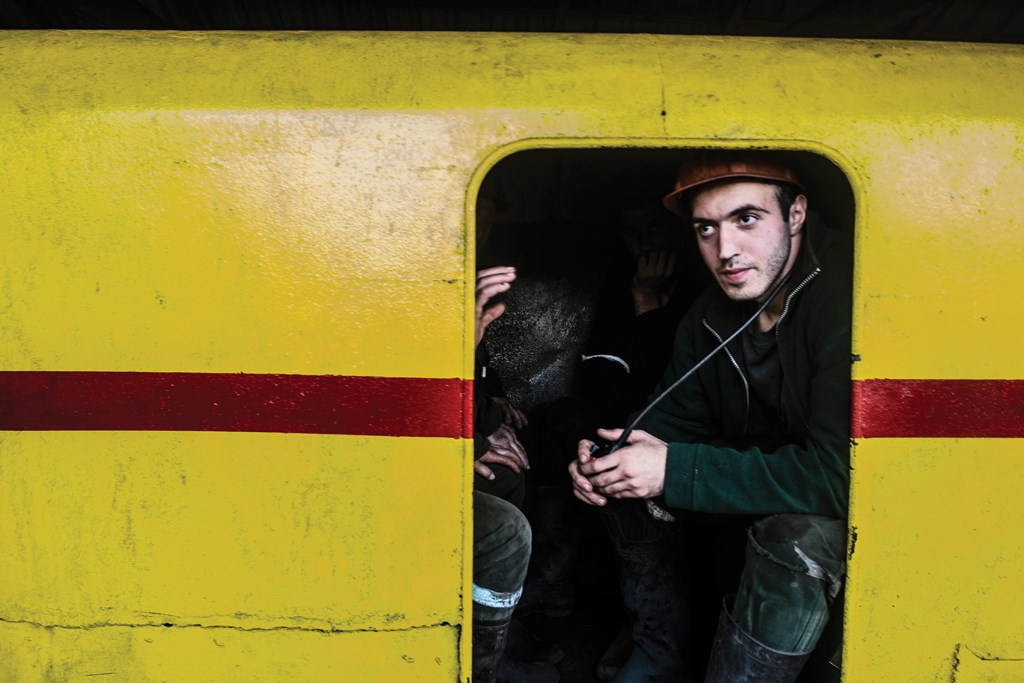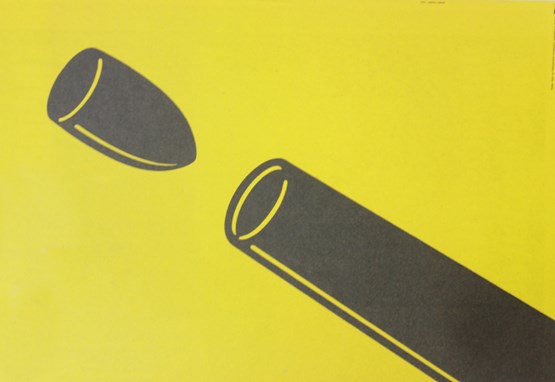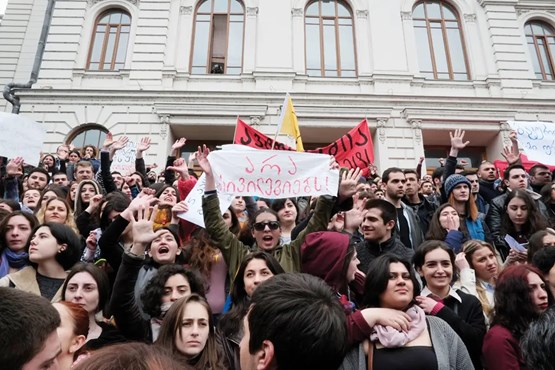
The Bell Jar
22.02.2019 | 10 Min to read“To the person in the bell jar, blank and stopped as a dead baby, the world itself is the bad dream.”
—Sylvia Plath, The Bell Jar (1963)
Social stratification analyst Erik Olin Wright, in his 1995 article The Class Analysis of Poverty, the typological perceptions of poverty in academic literature and by human mentality, and describes one of the least popular perceptions of poverty:[1] “Poverty as a result of inherent properties of the social system.”
To substantiate this explanation of poverty, Write argues, “Poverty is not incidental, and it is not a part. It is an inherent, and crucial, feature of a society with an economic structure grounded in class and exploitation. The pivotal idea is that there are powerful and privileged actors who have an active interest in maintaining poverty.[2] It is not just that poverty is an unfortunate consequence of their pursuit of material interests; it is an essential condition for the realization of their interests. To put it bluntly, they benefit from poverty.”
This Marxist theory, as cliché as may seem at first glance to take in and process, is quite complex in reality, especially if we want to discuss resistance, that is, the efforts invested by the poor to escape poverty. In this case, resistance and protest are two different things, with protest being a reaction, and resistance stands for causing a reaction.[3] This process, whether spontaneous or planned, organized or chaotic, always follows something—something must happen to trigger it.
To the poor, however, this “something” is reality itself, which is not incidental but rather permanently happening. Retiring to Wright’s laconic, clear, and yet quite complex, old and familiar theory, if something is an inherent feature of something, it no longer had anything to do unexpected incidents and reactions to them. Here we are dealing with historical opposition, and individual manifestations of this historical opposition in each individual context.
And that must be taken into account because we must exercise caution every time we deal with workers’ protests, lest we label their appearance in this endless war as a reaction, or as another protest, this way stripping the phenomenon itself of its true meaning.
And its true meaning is that, at times like these, we are witnessing moments of historic importance, when an incompatibility between the two polarities constituting historically developed reality—not some kind of personal, temporary, and meaningless confrontation—comes to light.
Who are we?
What is meant by the pronoun we use publicly to express our views to emphasize that it is not our personal interests that make us speak out? Is it just a token of politeness, an academic standard, or an attempt to give weight to our opinion and thus manipulate the listener?
If we are not those whose source of privileges rests in poverty, whose success relies in the dehumanization of others, who glory themselves at the expense of belittling others—including when they do so without realizing it—then we do have a name: miners, for one.[4]
We live everywhere, in Latin America and Russia, in Asia and Britain, in Kazakhstan and Chiatura. Sometimes we were the thin skin of starving Syrian children, and sometimes sewing machine needles drive through our feminine fingers in one of the sections in an endless row of sewing sweatshops somewhere in Bangladesh. We have various means of resistance, and resistance will not rest as long as we exist. Extremely concentrated wealth, capital embodied, incarnate through the intensity of accumulation, is what our blood sustains, the blood of small people, small like fleas in one’s head, the blood flowing into the gaping mouths of proprietors.
Who tries to represent the multitude we constitute?
So we come out of the ground and stand outside to take on poverty. We have resolved to stand firm. A new army materializes out of the blue. Dressed clean and curious in a genderless way. Well spoken, they carry expensive equipment in their bags. Something demonic is written across their foreheads, an incontrollable internal passion compelling to do something witty. Some, in their extreme nobility, have excessively china-like faces, which seem about to crumble suddenly like statues. Others, by standing here, return to their roots which have branched into oversized blood vessels in their consciousness. Some, bewildered, have wound up here by accident. A few will open their own fronts a few years later, though not exactly sure against whom.
They greedily suck poverty out of our eyes, collecting and then splitting it among themselves. They do not hesitate to start talking, exhibiting exceptional idealism in front of the equipment, as though having a premonition that they better trust machines then one another. They argue over something among themselves. In fact, they have a lot to argue about. They discuss on end who we are and who are enemies are. A few months later, we are not sure whether or not they remember us, what they are talking about in their odd offices, what is exactly that they do, and what their everyday lives are about, or what their mothers or fathers are like. That remains shrouded in mystery until we once again emerge from the ground, and until they reappear like a scientific expedition to an unknown planet.
How far back do we remember ourselves?
One of the most powerful characteristics of Georgia’s contemporary history, an unmistakable starting point somehow overlooked by everyone, was the moment when a segment of the population above a certain age, which is the majority of Georgia’s population, was declared socially, politically, and publicly liquidated.[5] The hysterical process of the country’s Westernization has categorized most citizens as garbage to be processed.
Every subsequent event or process in the country exclusively and automatically excluded such persons from participation. Every process featured its participants’ modernist and postmodernist aspects, and every tense moment in social life continues, more than ever, to represent a miserable attempt to reclaim legitimacy for their once deprived human existence.
Still, there have been incidents in Georgia’s contemporary history when the wall between them cracks or shakes ever so slightly, and if there has been even one instance prospectively capable of transforming into a precondition for escape from this endless nightmare, it must have been those precedents when standing by the most voiceless and marginalized was turned by small youth groups into something acceptable for the previously restricted modernist lifestyle.
And that marks the moment when the expedition—one positioned beyond the modernist and postmodernist—goes down to meet the miners. It is somewhat unimaginable because there have been no objective reasons or preconditions for that to happen, nor has there been any tradition. However, the phenomenology of global poverty apparently finds a way to pull on the heartstrings of those especially curious.
It is just that some of the prodigal sons of the Rose Revolution happen to have reasoned, “Is this what our life should be like?” The only shot at doing something about it involves making friends with a handful of local “intellectuals” and to start working for their satellites. In reality, we have no future whatsoever because, even though have been privileged enough to consider ourselves a “progressive” part of society, we are too proud to take pleasure in it. We have no prospects of enjoying a normal human life, good quality education, and of escaping the landfills of our parents, and the inner circle of local “intellectuals” is so poor and sickening that we cannot find it in our hearts to integrate with them. They only speak of cinema and the Soviet Union, while in reality despising people and proving unable to stop taking pleasure in their provincial elation brought about by sipping wine in European cafes.
We are running around in circles, in which everything is a simulation, while real life is falling apart behind this hallucination. Behind every renovated office, clean airport, and upscale restaurant there reign filth, animal-like living, and contamination in their basements, kitchens, and warehouses. Every person under middle management is nothing but a pipe serving someone else’s stomach, entertainment, and personal interests, and the only way out of this, in people’s minds, is to climb the same ladder where they themselves can become successful managers.
To describe all this, the poor narratives offered by local intellectuals are not enough. These problems do not stem from the reasons pushed on us for years. What is rotting today is capitalism as a general social, historical, and economic context, not some party or cultural value, or even post-Soviet country. This process, in turn, is closely tied to the overall historical context, the global policy of power. If we fathom that, we have nothing keeping us here, and we must go to them. Go to the miners.
A few years later
In February of 2016, rallies and strikes erupted simultaneously in several industrial settlements of Georgia, only to be followed by large-scale student protests in spring, and the takeover of one of the university auditoria for several months with a demand to overhaul the system of education. These strikes proceeded alongside “the ongoing recession.” Every company put forth the same argument claiming that the profits did not suffice to improve working conditions or to increase salaries. The miners’ strike drew most of the attention. The miners enjoyed cooperation with left-wing youth organizations and workers from other industrial towns and settlements. During this 21-day strike, these closely cooperating networks managed to stir up and excite the whole town to rebellion, and to occupy the administrative building of the mine. Nonetheless, the strike ended with mundane, hypothetical negotiations, from which Tkibuli gained nothing. Shortly thereafter, at different times within a year or so, eleven people died while working in the mine.
What is the reason behind the sad endings of the precedents of workers’ resistance in Georgia? Is it the state’s total inaptness in standing up to the private sector? The absence of solidarity within society? Dogmatic approaches and insufficient efforts from left-wing groups, lack of organization, or the absence of a unified strategy? The yellowness of the press, ineffective trade unions, or unmistakable, intolerant class cold-heartedness stemming from the monopolization of the agenda by local civil society? These questions, ideally to be placed in the beginning of this article, appear at the bottom, so that one or several may not be given intentionally.
After resistance
The miners once again find themselves facing the cruel modern world, with its myriad unfamiliar technologies, a language that the working class does not understand. This language divides, dissects. It is the language of pay boxes, the language of robot bank operators.[6] By now, the workers know well that, in case of another instance of resistance, the administrators and company managers will use this boring and incomprehensible language to communicate with them. They will pile up tons of fancy terms, speaking convincingly and at length about international bureaucracy, and employing new technocracy syntax, one totally alien to industrial workers in a deindustrialized country. Constantly manipulating numbers and terms makes negotiations impossible, and prevents the strategic form of strike from succeeding, which means that it strips the power of negotiations of its value, of the historical role of trade unions, and the arrogant solidarity of students.
The bell jar is a bell-shaped glass described by Sylvia Plath in her eponymous novel, her last work published under a penname. The bell jar is enormous. It comes down on you to create a void and trap you inside. It is translucent, so what happens inside can be seen from the outside, but the voice inside cannot be heard outside. This voice is muffled and distorted into weird shapes by the jar’s glass walls. Just like fish are scared of their unreal reflections in the walls of a circular aquarium, so does one in a bell jar get used to his deformed face, inhuman self-consciousness, neck without ligaments, and mouth ajar in despair.
Plath uses this metaphor to describe mental pain that women may have felt within the walls of America’s patriarchal society, and that back in the time of the so-called golden age, with its boom of prosperity, glittering skyscrapers, and genuine faith in the American dream.
Today as the boom of prosperity has turned into a chronical crisis, and a new depression has emerged in economic history, with its financial chasms, democratic catharses, and poverty of unimaginable magnitude, the impossibility of resistance traps the working poor under a gigantic bell jar.
Everything that the miners remember in a material form transforms in mental concepts or fictions, preventing them from proving the actuality of their physical existence despite the fact that they, on a daily basis, see [hypothetically] the ore extracted from the ground with their own hands. Their Bible reads one and the same sentence: without profit, there will be no workplaces; without increasing profit, inequality cannot increase either.
And their children, let’s have a look at them, those who have moved to the city only to wind up with some supermarket’s appallingly gaudy green uniform, cashier’s uncomfortable chair, and overdue student loans in their hands instead of studying. A cashier can see a given day’s sales, yet constantly repeated manual movements and rapid encounters with unclear digits make up pretty strong fiction. Horrible alienation tears apart such fathers and mothers and their children, one that may be even called tragic alienation, with each of them focusing solely on fighting tooth and nail for personal space, for peace and quiet after a hard day’s work, for having one’s personal bell jar[7] applying durable stitches to the impossibility of resistance.
“The modern proletarian class does not carry out its struggle according to a plan set out in some book or theory; the modern workers' struggle is a part of history, a part of social progress, and in the middle of history, in the middle of progress, in the middle of the fight, we learn how we must fight.”[8]
As a result of the inherent feature of the social system, contemporary poverty’s fight utilizes nerves passing through weird mental mutations, also using collapsing facial expressions, fragmented speech, and angelic stamina bordering on psychosis, lest it dare utter a word against the giant jar bell covering it.

Photo: Sopho Aptsiauri
__________________________________
[1] Wright’s article is complemented by the results of two surveys conducted in the US in 1980 and 1991 on attitude toward poverty. These surveys use the method of comparative class analysis to enable the authors to differentiate and juxtapose the answers by lower class representatives and those by private capital owners.
[2] Notably, the author uses the word poverty, not power—an active interest in maintaining poverty, not power. In the same vein, if we maintain poverty, power will no longer be forced to take action to maintain itself.
[3] This allusion to a chemical reaction altering the composition of a given substance. During a chemical reaction, elements interact to create another substance, with the molecules transforming and the atoms remaining unchanged.
[4] The term miners, as used in this article, has two compatible meanings. On one hand, it means Georgia’s industrial workforce proper. On the other, it is an umbrella term of sorts encompassing the contemporary eclectic and non-homogenous class of workers/unemployed, including every category of the poor.
[5] The policy of flushing down the drain implemented by the authoritarian regime following the Rose Revolution, in reality, in practice, sought to dehumanize the poor, unemployed, and pensioners, not the intelligentsia. Notably, with insurmountable socioeconomic challenges after the structural transformation, most of Georgia’s population have been categorized within this target group.
[6] “When you use an ATM, it asks you to respond to the demands of the machine, which requires you to ‘enter your code,’ ‘choose your amount,’ or "take your bills.’ These operations ‘clearly do not require acts of intellectual virtuosity-quite the opposite, one is tempted to say. What you are asked to do is to react appropriately, react quickly and without making errors, otherwise you run the risk of being momentarily excluded from the system.’ There is no subject who acts here, but a ‘dividual’ that functions in an ‘enslaved’ way to the sociotechnical apparatus of the banking network. The ATM activates the ‘dividual’ not the individual. Deleuze uses this concept to show that in machinic subjugation, ‘Individuals become dividuals, and masses become samples, data, markets, or banks’” (Maurizio Lazzarato, The Indebted Man, 2012).
[7] Echoing Virginia Woolf’s concept of a room of one’s own.
[8] Rosa Luxemburg, The Politics of Mass Strikes and Unions, 1906.
ეს სტატია მხოლოდ გამომწერებისთვისაა. შეიძინე შენთვის სასურველი პაკეტი
We Recommend





